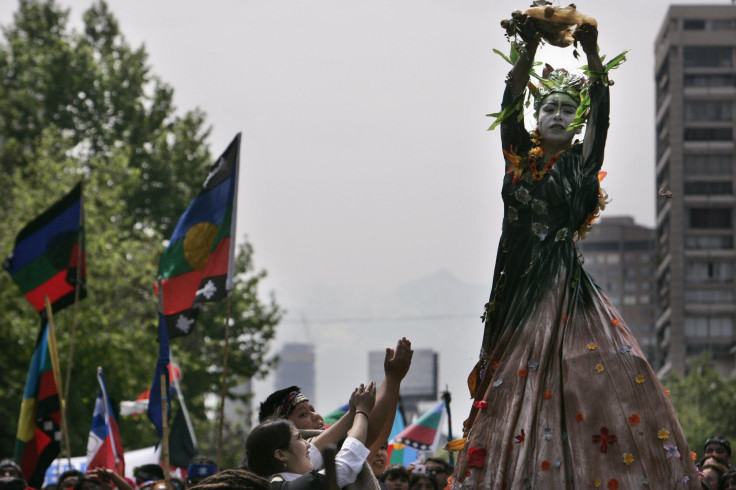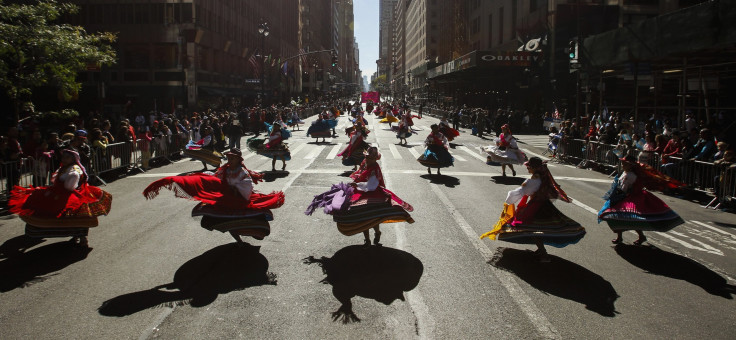Columbus Day 2015: What Is The Day Of The Race? Latin America Celebrates Día De La Raza Instead Of Italian Explorer

Every October, the United States celebrates the day Christopher Columbus arrived in the Americas with the national holiday of Columbus Day -- but how is this day celebrated in other countries?
The most common alternative in Latin American countries is called Día de la Raza, or Day of the Race. Like Columbus Day, this holiday originated from the anniversary of the Italian explorer’s arrival in the New World. But because Columbus enslaved and killed huge portions of the native populations he encountered while colonizing the Americas, Latin American countries celebrate not Columbus the man but rather all the people and cultural influences that came after him and exist today.
Día de la Raza is a day for countries that were once conquered by Spanish (and other European) explorers to recognize their indigenous people, traditions and cultural heritage, according to History.com. Countries that celebrate Día de la Raza -- or some version of this holiday -- include Argentina, Chile, Colombia, Costa Rica, Ecuador, El Salvador, Honduras, Mexico, Nicaragua, the Philippines, Uruguay and Venezuela, among others.

Despite its status as a national holiday, Día de la Raza continues to be controversial in many places. As a report from Latin American TV network teleSUR points out, Día de la Raza not only recalls the violent histories of these countries and their people but also serves as a reminder of current struggles facing indigenous populations throughout Mexico and Latin America. Indigenous people account for about 13 percent of Latin America’s total population, according to teleSUR, and in many countries they face poverty, discrimination and racism.
In order to recognize the history and current struggles faced by these people, several countries have changed the name of Día de la Raza to focus more on diversity or native issues in recent years. Venezuela, for example, changed its holiday to Day of the Indigenous Resistance in 2002, according to the U.S. Library of Congress. Nicaragua took that name for the holiday as well, and Argentina has renamed its holiday Day of Respect for Cultural Diversity. Chile’s holiday is now called Day of the Encounter Between the Two Worlds, and in 2011, Ecuador changed Oct. 12 to Day of Interculturality and Plurinationality,” according to teleSUR.
On the other hand, Spain has made Oct. 12 into a national holiday called Día de la Hispanidad (Day of Hispanity) or Fiesta Nacional de España (National Day of Spain). There, the holiday commemorates Spanish history and celebrates the country’s monarchy and military with a parade in Madrid.
In America, some states have renamed Columbus Day Native American Day, and others also celebrate a version of Hispanic Day. In New York, the Sunday before Columbus Day is often host to the Hispanic Day Parade, which goes along Fifth Avenue and includes representatives from a wide variety of Hispanic groups and dance troupes. This year’s parade takes place Sunday and comes in the final days of Hispanic Heritage Month, which ends Oct. 15.
© Copyright IBTimes 2024. All rights reserved.






















